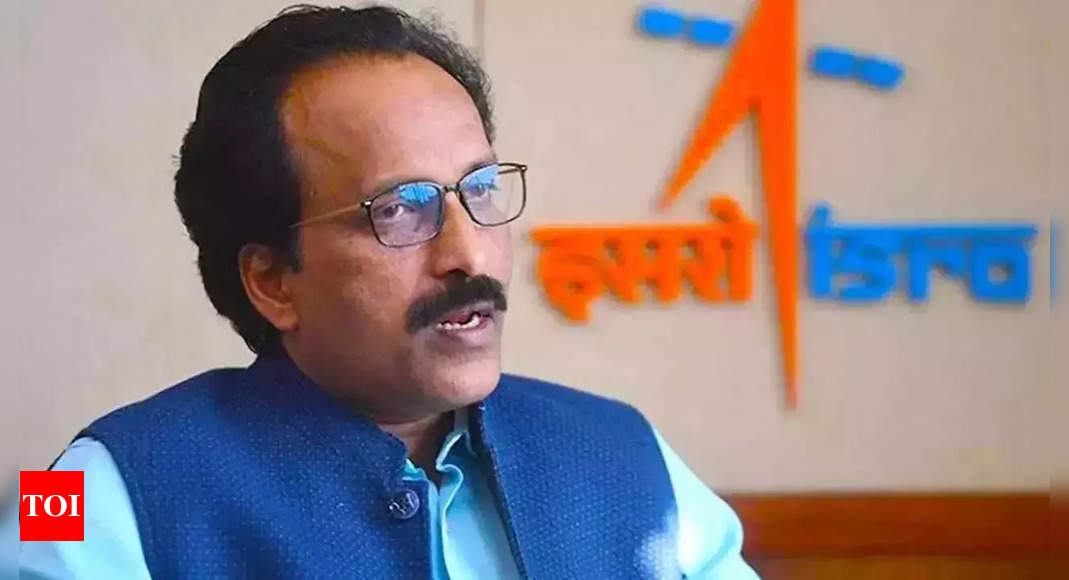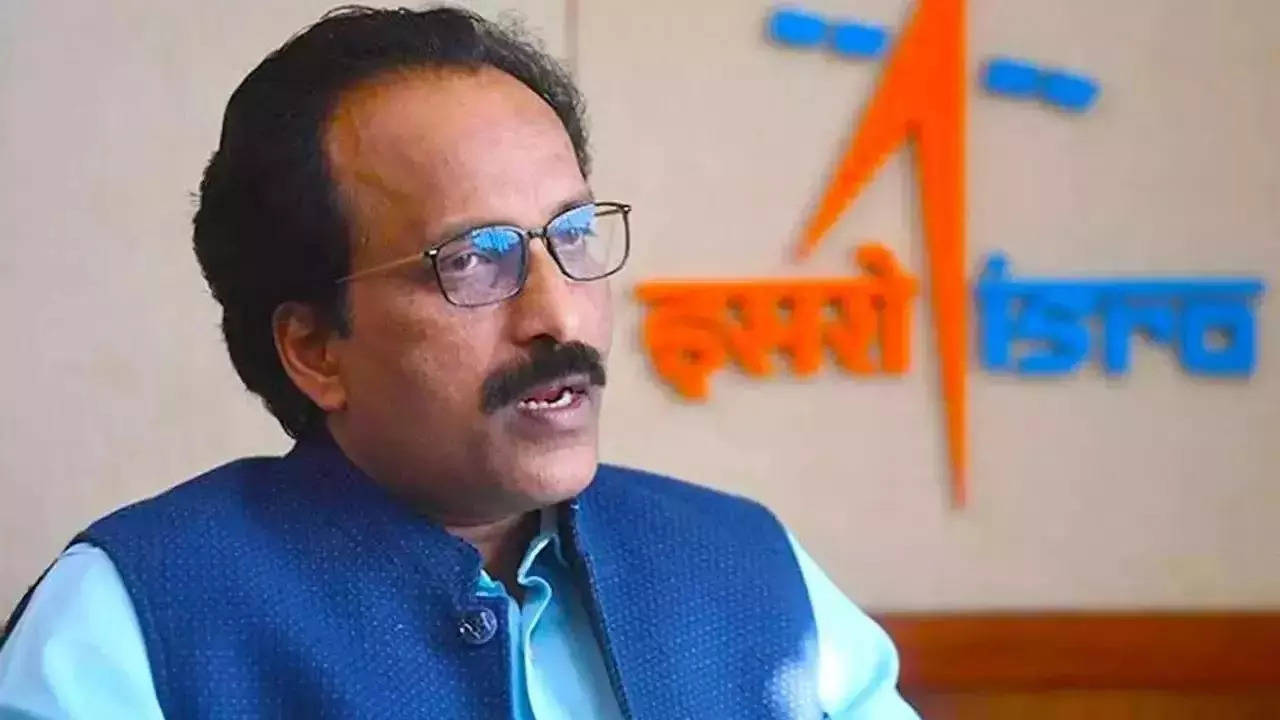[ad_1]
BENGALURU: Isro chairman S Somanath on Thursday expressed concern over India’s position in core technology development within the IT sector. He pointed out that despite India’s success in IT services, there was a significant gap in the country’s ability to produce original software products and core technologies.
He spoke after laying the foundation stone for ‘Cyber Nalanda’, a new cybersecurity R&D centre being developed by cybersecurity firm SISA, near Devanahalli on the outskirts of Bengaluru.
Somanath highlighted the contrast between India’s prowess in IT services and its shortcomings in developing core technologies. He noted that while India has excelled in providing IT services and building platforms for global customers, it has fallen short in creating indigenous software products.
“…But then if you really look at IT services and IT tools that we have been doing over the years, one very sad part is that we have been working on technologies which are already existing and finding out solutions based on those technologies,” Somanath said.
He added: “Of course, we’ve been good at building certain platforms for global customers and bringing revenues, jobs in India in a substantial manner, especially in the IT domain. But if you really go into the core technology development part in this domain, we will see the story is not that very good at all. If you really look at the type of applications or software that has come out of Indian industries, in core technology domains, we will see that they are very, very less, extremely less.”
The Isro chairman pointed out that many critical software tools used in various industries, including space technology, are still procured from abroad rather than being developed within the country.
To address this issue, Somanath said that Isro has taken steps to change this trend by developing in-house software products. He mentioned examples such as FEAST (Finite Element Analysis Structures) and CFD tools, which are now being used within the organisation and are being prepared for commercial release.
He also stressed the critical need for robust cybersecurity measures, especially for national infrastructure and space assets. He highlighted the potential vulnerabilities in satellite networks and ground stations, stressing the importance of enhanced cybersecurity protocols. Somanath underscored the broader implications of cybersecurity for national security, financial systems, and critical infrastructure.
In his speech, Somanath called for fostering an ecosystem that connects researchers, academics, and industry to develop world-class products in both hardware and software. He emphasised the importance of inspiring leadership and creating teams of motivated individuals to drive innovation in core technology development.
With the foundation stone laying, SISA will begin construction on ‘Cyber Nalanda’, a facility that aims to become a global hub for cybersecurity innovation, focusing on academic collaboration and addressing the industry’s skills gap. SISA plans to invest 10% of its annual revenue in R&D at the centre.
Once ready, the facility will offer “ANAB accredited” certification programmes to train new cybersecurity professionals, targeting the 3.5 million unfilled jobs in the field globally.
SISA CEO Dharshan Shanthamurthy said the centre’s goal is to develop solutions for emerging threats from AI, robotics, 6G, and quantum computing. He stressed a shift “from cybersecurity to cyber safety.”
He spoke after laying the foundation stone for ‘Cyber Nalanda’, a new cybersecurity R&D centre being developed by cybersecurity firm SISA, near Devanahalli on the outskirts of Bengaluru.
Somanath highlighted the contrast between India’s prowess in IT services and its shortcomings in developing core technologies. He noted that while India has excelled in providing IT services and building platforms for global customers, it has fallen short in creating indigenous software products.
“…But then if you really look at IT services and IT tools that we have been doing over the years, one very sad part is that we have been working on technologies which are already existing and finding out solutions based on those technologies,” Somanath said.
He added: “Of course, we’ve been good at building certain platforms for global customers and bringing revenues, jobs in India in a substantial manner, especially in the IT domain. But if you really go into the core technology development part in this domain, we will see the story is not that very good at all. If you really look at the type of applications or software that has come out of Indian industries, in core technology domains, we will see that they are very, very less, extremely less.”
The Isro chairman pointed out that many critical software tools used in various industries, including space technology, are still procured from abroad rather than being developed within the country.
To address this issue, Somanath said that Isro has taken steps to change this trend by developing in-house software products. He mentioned examples such as FEAST (Finite Element Analysis Structures) and CFD tools, which are now being used within the organisation and are being prepared for commercial release.
He also stressed the critical need for robust cybersecurity measures, especially for national infrastructure and space assets. He highlighted the potential vulnerabilities in satellite networks and ground stations, stressing the importance of enhanced cybersecurity protocols. Somanath underscored the broader implications of cybersecurity for national security, financial systems, and critical infrastructure.
In his speech, Somanath called for fostering an ecosystem that connects researchers, academics, and industry to develop world-class products in both hardware and software. He emphasised the importance of inspiring leadership and creating teams of motivated individuals to drive innovation in core technology development.
With the foundation stone laying, SISA will begin construction on ‘Cyber Nalanda’, a facility that aims to become a global hub for cybersecurity innovation, focusing on academic collaboration and addressing the industry’s skills gap. SISA plans to invest 10% of its annual revenue in R&D at the centre.
Once ready, the facility will offer “ANAB accredited” certification programmes to train new cybersecurity professionals, targeting the 3.5 million unfilled jobs in the field globally.
SISA CEO Dharshan Shanthamurthy said the centre’s goal is to develop solutions for emerging threats from AI, robotics, 6G, and quantum computing. He stressed a shift “from cybersecurity to cyber safety.”
[ad_2]
Source link

